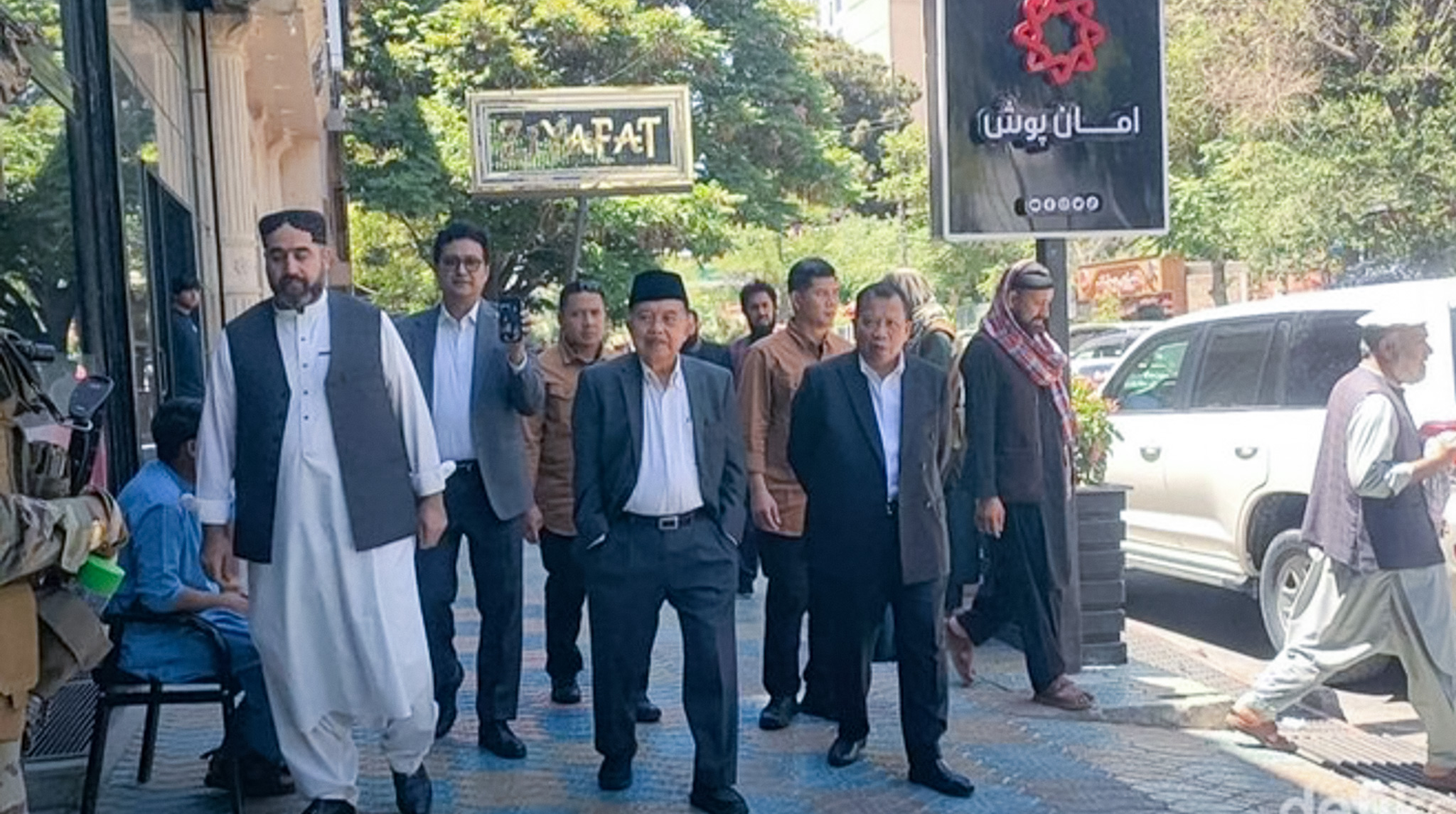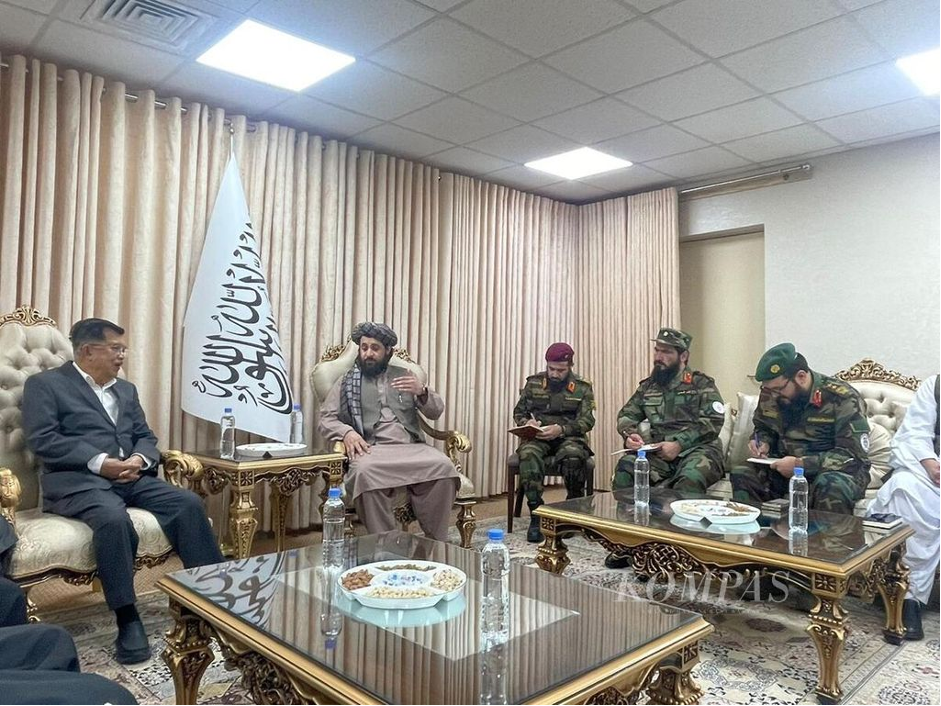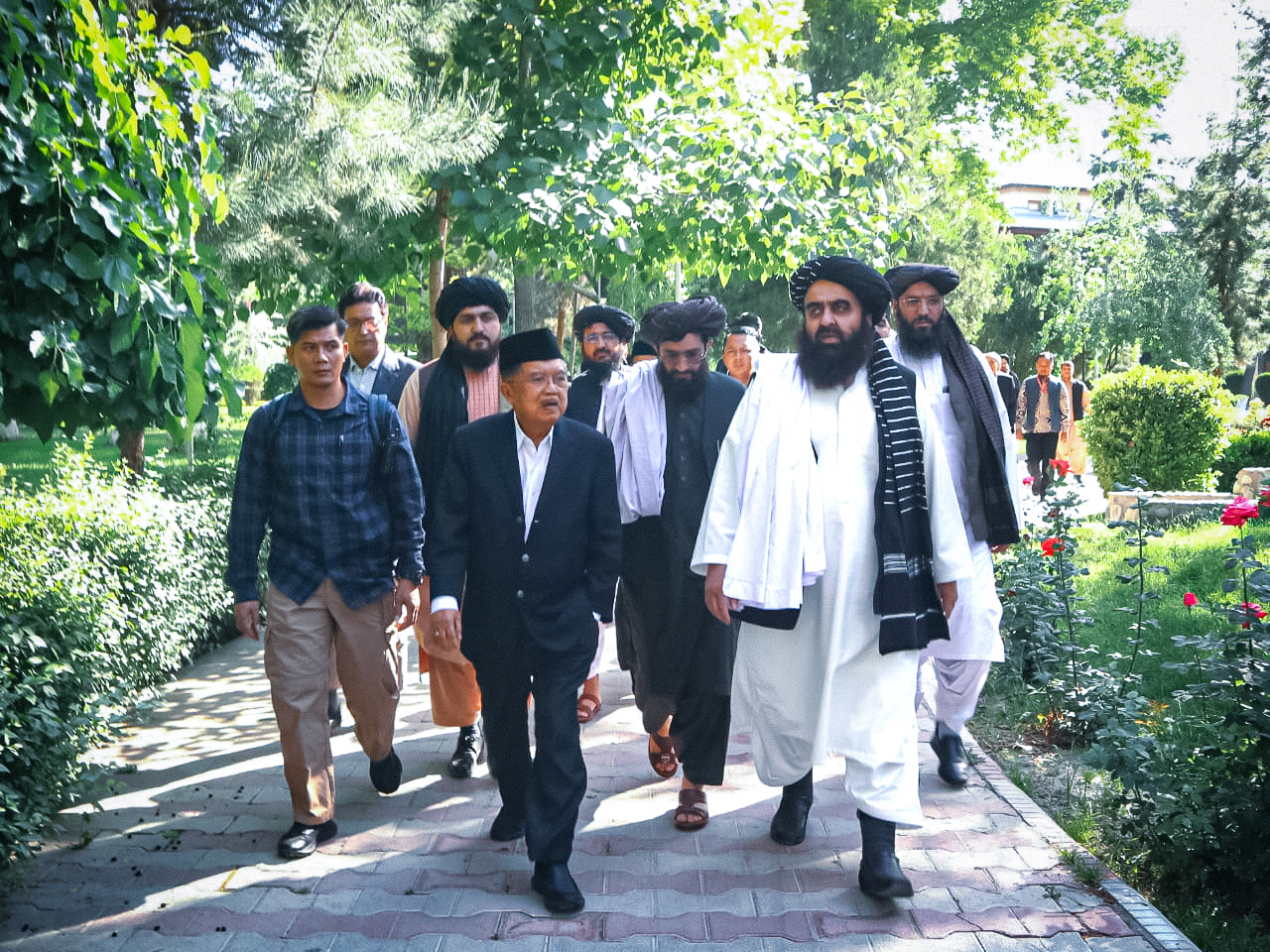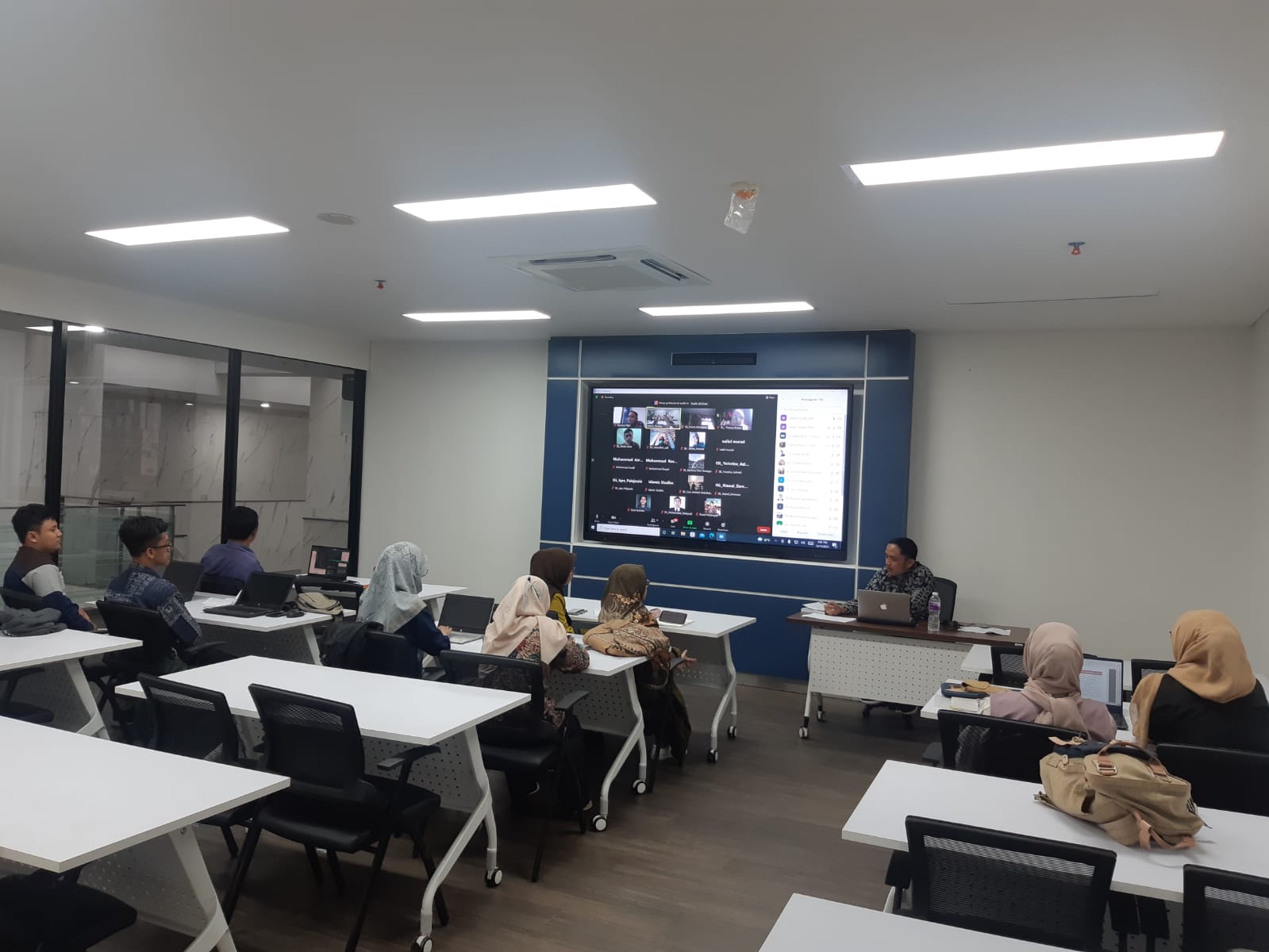A Stroll Through Kabul
June 06, 2024Contributor : Dadi Darmadi | Photo: Dhani Irawan - detikNews

UIII, Kabul - In an effort to showcase a side of Afghanistan seldom seen in international media, Dr. (HC) H.M. Jusuf Kalla, the Chairman of UIII Board of Trustees, took a leisurely walk through a bustling shopping center in Kabul. This simple yet powerful gesture aimed to dispel the often grim perceptions of Afghanistan and highlight its strides towards normalcy and safety.
Jusuf Kalla, also known by his nickname JK, was in Kabul at the invitation of the Afghan government and made time between high-level meetings to explore the city on foot. Accompanied by his entourage, he enjoyed lunch at a local restaurant and later visited a shopping center, buying souvenirs and engaging with locals. His presence in the market was a statement in itself: "Very safe, different from people's perception," he noted.
The area Kalla visited, characterized by wide sidewalks and lively commercial activities, presented a stark contrast to the image of Afghanistan as a war-torn nation. One notable landmark was Majid Mall, a hub of local commerce that thrived with activity. The sight of Kalla, who is also the Chairman of the Indonesian Mosque Council (DMI), casually walking through the mall sent a strong message about Kabul's safety and the resilience of its people.
JK's visit included meetings with key Afghan officials, including the Minister of Foreign Affairs, Mullah Amir Khan Muttaqi, and the Minister of Defense, Mullah Muhammad Yaqoob to talk about women and education. These discussions underscored the deep-rooted ties between Indonesia and Afghanistan, dating back to the era of Indonesia's first President, Bung Karno. "I feel happy to be able to come to Kabul again, there have been many changes," Kalla remarked.
Kalla's walk through the shopping center, coupled with his diplomatic engagements, painted a picture of a nation on the mend. His visit highlighted the resilience of the Afghan people and the significant strides the country has made towards peace and stability. The underlying message was clear: Afghanistan is not just a land of conflict; it is a nation with a rich history, vibrant culture, and a hopeful future [].
- UIII Extends Application Deadline for 2025 International Admissions
- What Does Eid al-Fitr Mean for the UIII Academic Community?
- UIII PhD Scholar Ararat Kostanian Delivers Lecture at Armenia's Yerevan State University
- Swedish Ambassador to Indonesia Applauds UIII’s Vision, Explores Future Collaboration
- Depok Mayor Supports UIII as the Green Lung of Depok and Beyond
- Depok Mayor Pledges to Build Performance Hall at UIII
- New Parking Facility Launched, Part of UIII-Sentra Medika Hospital Partnership
- Yogyakarta’s UII Won 1st FisFastFest’s Clash of Campuses
- Vice Minister of Religious Affairs Praises UIII as a Global Hub for Islamic Education
- Hurray!! UIII Wins Football Championship


